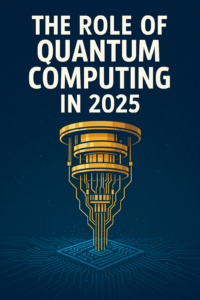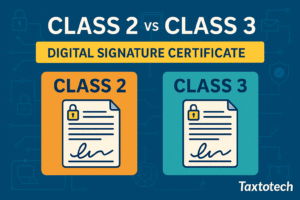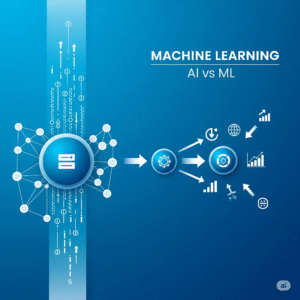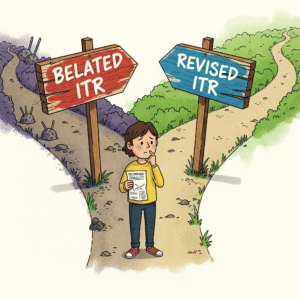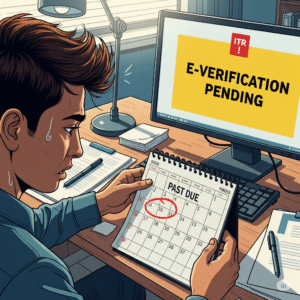Remember the days of endless waiting on hold with the tax authority, or sifting through dense legal jargon just to understand a single tax form? For many, getting clear, timely answers to tax questions felt like a monumental task, often leading to frustration and missed opportunities. But what if you could get personalized, instant tax help, 24/7, right from your phone or computer?
Welcome to the future of tax support, Taxtotech Readers, where AI chatbots and virtual tax assistants are no longer a futuristic dream but a rapidly evolving reality. These conversational AI tools are fundamentally changing how we access tax advice, offering immediate answers, guiding us through complex forms, and troubleshooting issues with unprecedented efficiency. At Taxtotech, we’re thrilled to explore how this intelligent technology is making tax season less daunting and more accessible for everyone. Let’s dive into how AI is revolutionizing the very nature of tax support.
The Problem with Traditional Tax Support: A Bottleneck of Bureaucracy
Before we celebrate the revolution, it’s worth acknowledging the challenges that traditional tax support models have presented:
- Long Wait Times: Especially during peak tax season, reaching a human representative at tax agencies or even traditional tax preparation services can involve frustratingly long waits.
- Limited Availability: Human support is constrained by business hours, time zones, and staffing levels.
- Information Overload: The tax code is notoriously complex. Finding specific, relevant information quickly can be like searching for a needle in a haystack.
- Cost of Expertise: Professional tax advice, while invaluable, can be expensive, putting it out of reach for many who only have simple questions.
- Inconsistent Answers: Different agents might interpret less common scenarios slightly differently, leading to inconsistent advice.
These challenges highlight a clear need for a more scalable, accessible, and consistent solution – a need that AI chatbots and virtual tax assistants are perfectly poised to fill.
What Are AI Chatbots and Virtual Tax Assistants?
At their core, AI chatbots and virtual tax assistants are sophisticated software programs designed to simulate human conversation and provide information or perform tasks. In the tax realm, these tools are powered by advanced Artificial Intelligence techniques, primarily Natural Language Processing (NLP) and Machine Learning (ML).
- Natural Language Processing (NLP): This allows the AI to understand human language, whether typed or spoken, interpreting context, nuances, and intent behind your questions. So, instead of just recognizing keywords, it grasps the meaning of your tax query.
- Machine Learning (ML): This enables the AI to learn and improve over time. The more interactions it has, the better it becomes at understanding queries, providing accurate answers, and even predicting what kind of information you might need next.
Unlike simple rule-based chatbots that follow a rigid script, modern AI tax chatbots are “conversational AI.” They can engage in dynamic, personalized dialogues, making the experience feel much closer to speaking with a knowledgeable human assistant.
How Conversational AI is Revolutionizing Tax Support
The application of conversational AI is fundamentally transforming how individuals and businesses interact with tax information and support systems.
1. Instant Answers to Common Tax Questions
One of the most immediate benefits of AI tax chatbots is their ability to provide instant answers. No more waiting on hold; no more endless scrolling through FAQs.
- 24/7 Availability: Tax questions don’t always arise during business hours. An AI chatbot is always “on,” ready to answer your queries, whether it’s late at night or on a public holiday.
- Rapid Information Retrieval: Trained on vast datasets of tax laws, IRS publications, and common taxpayer queries, these virtual assistants can pull up relevant information and cite sources in seconds. Need to know the income threshold for a specific credit? Ask the chatbot. Wondering about filing deadlines? The answer is immediate.
- Handling High Volume: During peak tax season, the sheer volume of inquiries can overwhelm human support lines. AI chatbots can handle thousands, even millions, of simultaneous queries without breaking a sweat, ensuring everyone gets timely assistance.
2. Personalized Guidance on Forms and Eligibility
Moving beyond generic FAQs, advanced virtual tax assistants offer tailored guidance.
- Form Navigation: Feeling lost filling out a specific line on a Schedule C or Form 8812? An AI chatbot can walk you through it, explaining what information is needed and why.
- Eligibility Checks: While they can’t provide definitive legal advice, these tools can ask probing questions to help you understand if you likely qualify for certain deductions or credits based on your responses. For example, if you ask about the Earned Income Tax Credit, the bot might ask about your AGI, number of qualifying children, and filing status to give you a more accurate indication.
- Contextual Understanding: Some chatbots integrate with your tax software. If you’re stuck on a particular section of your return within the software, the virtual assistant can pop up, recognize your context, and offer help specific to that line item or form.
3. Troubleshooting and Problem Solving
AI isn’t just about answers; it’s also about helping you resolve issues.
- Error Identification: If you’re getting an unexpected error message in your tax software, an AI tax chatbot can often diagnose the problem by cross-referencing common error codes or asking you to describe the issue.
- “What If” Scenarios: Some advanced virtual assistants allow you to explore “what if” scenarios. “What if I contributed more to my IRA?” or “What if my side hustle income was X instead of Y?” The AI can quickly run these simulations to show the potential tax implications.
- Redirecting to Human Support: Crucially, sophisticated AI knows its limits. If a query is too complex, involves a unique personal situation requiring nuanced interpretation, or enters the realm of legal advice, the virtual assistant is designed to seamlessly hand off the conversation to a human tax professional, often providing the human with the chat history for context.
Key Capabilities of AI Chatbots in Tax Support
| Capability | Description | Benefit to Taxpayer |
|---|---|---|
| Instant Q&A | Provides immediate, accurate answers to a wide range of tax-related questions, including definitions, deadlines, and basic eligibility. | Eliminates wait times, offers 24/7 access to information, reduces frustration. |
| Form Walkthroughs | Guides users line-by-line through tax forms, explaining what information is required for each field. | Simplifies complex forms, reduces errors, builds confidence in self-preparation. |
| Personalized Querying | Asks follow-up questions based on user input to understand specific situations and provide more tailored advice or relevant sections. | Ensures advice is more relevant to the user’s unique tax scenario, preventing generic or irrelevant information. |
| Document Assistance | Helps users understand where to find specific information on tax documents (e.g., W-2, 1099) for data entry. | Speeds up data entry, minimizes errors from misinterpreting forms. |
| Compliance Checks | Provides information on the latest tax law changes and reminds users about specific compliance requirements. | Keeps users informed of current regulations, reducing risk of non-compliance. |
| Troubleshooting & FAQs | Addresses common technical issues within tax software and provides solutions or directs users to the appropriate resources. | Solves common problems quickly, reduces need for direct customer support contact. |
| Human Handoff | Recognizes when a query is beyond its scope and seamlessly transfers the conversation to a human tax expert, providing context. | Ensures complex issues are addressed by qualified professionals without starting from scratch. |
The Technology Under the Hood: More Than Just Keywords
The effectiveness of these AI tax chatbots and virtual tax assistants relies on powerful underlying technologies:
- Large Language Models (LLMs): These are the backbone of generative AI. They are trained on vast amounts of text data (including tax codes, rulings, FAQs, and common questions) to understand, generate, and summarize human-like text.
- Knowledge Graphs: These structured databases help AI understand the relationships between different tax concepts. For example, a knowledge graph would link “Child Tax Credit” to “dependent eligibility,” “income thresholds,” and “refundable portions.”
- Sentiment Analysis: Some advanced AI can even detect the user’s emotional tone, allowing for more empathetic responses or escalating frustrated users to human agents more quickly.
This combination allows AI in tax preparation to provide not just answers, but also context, reasoning, and a conversational flow that feels natural and helpful.
Benefits of AI Chatbots for Tax Filers and Tax Software Providers
| For Tax Filers (You) | For Tax Software Providers/Agencies |
|---|---|
| 24/7 Instant Access: Get answers anytime, anywhere. | Reduced Support Costs: Automate handling of routine queries. |
| Reduced Stress: Quick answers minimize confusion and anxiety. | Improved Efficiency: Handle higher volumes of inquiries with fewer resources. |
| Increased Accuracy: Consistent, data-driven responses. | Enhanced Customer Satisfaction: Provide faster, more consistent support. |
| Personalized Guidance: Tailored help for specific situations. | Scalability: Easily manage peak tax season demand. |
| Learning & Empowerment: Better understanding of tax rules. | Data-Driven Insights: Analyze user queries to improve services and product features. |
| Accessibility: Breaks down barriers for those who struggle with traditional methods. | Focus for Human Agents: Allows human experts to focus on complex, high-value cases. |
| Cost-Effective: Often included in software or free for basic queries. | Competitive Advantage: Offer cutting-edge support features. |
The Future of Tax Support with Taxtotech
The rise of AI chatbots and virtual tax assistants marks a significant leap forward in tax support. They are making tax information more accessible, understandable, and manageable for everyone. As these technologies continue to evolve, they will become even more sophisticated, offering proactive advice, anticipating needs, and seamlessly integrating with all aspects of our financial lives.
At Taxtotech, we believe that understanding these innovations is key to empowering yourself in the digital age. By leveraging the power of conversational AI, you can transform your tax experience from a daunting annual chore into a smooth, guided process. The future of tax support is real-time, intelligent, and designed with you in mind.
FAQ
Q1: Are AI tax chatbots reliable for accurate tax advice? A1: Reputable AI tax chatbots are trained on vast datasets of official tax laws and IRS publications, making them highly reliable for factual information and guidance on common scenarios. However, for extremely complex, nuanced, or unique personal financial situations, they will typically advise consulting a human tax professional. Always ensure you’re using a trusted platform.
Q2: Can a virtual tax assistant prepare my entire tax return for me? A2: While AI-powered tax software (which often includes virtual assistants) can automate much of the data entry and calculation, and guide you through the process, a virtual tax assistant itself acts more as an interactive guide and support system. It helps you understand questions, troubleshoot issues, and find information, but the final responsibility for inputting accurate data and reviewing the return still lies with the user.
Q3: How do AI chatbots handle my privacy and data security? A3: Leading AI tax chatbot providers prioritize data security and privacy. They use advanced encryption, secure servers, and often comply with strict data protection regulations (like GDPR or CCPA). However, it’s crucial to use chatbots built into reputable tax software platforms rather than unverified third-party tools, and always be cautious about sharing extremely sensitive, unprompted personal data in any chat.
Q4: What’s the difference between a simple chatbot and an AI-powered virtual assistant? A4: A simple chatbot typically follows a pre-programmed script or a decision tree, providing pre-written answers to specific keywords or questions. An AI-powered virtual assistant, on the other hand, uses Natural Language Processing (NLP) to understand the meaning and context of your questions, and Machine Learning (ML) to learn and adapt its responses, making the conversation much more fluid, personalized, and intelligent.
Q5: Can AI chatbots tell me if I’m eligible for specific tax credits like the Child Tax Credit? A5: Yes, AI tax chatbots can certainly help you understand eligibility criteria for credits like the Child Tax Credit. They can ask you a series of questions about your income, dependents, and filing status, and then explain whether you likely meet the requirements based on the current tax law. They can provide information and guidance but remember they are not providing financial or legal advice, so for definitive confirmation on complex eligibility, a human professional is best.






